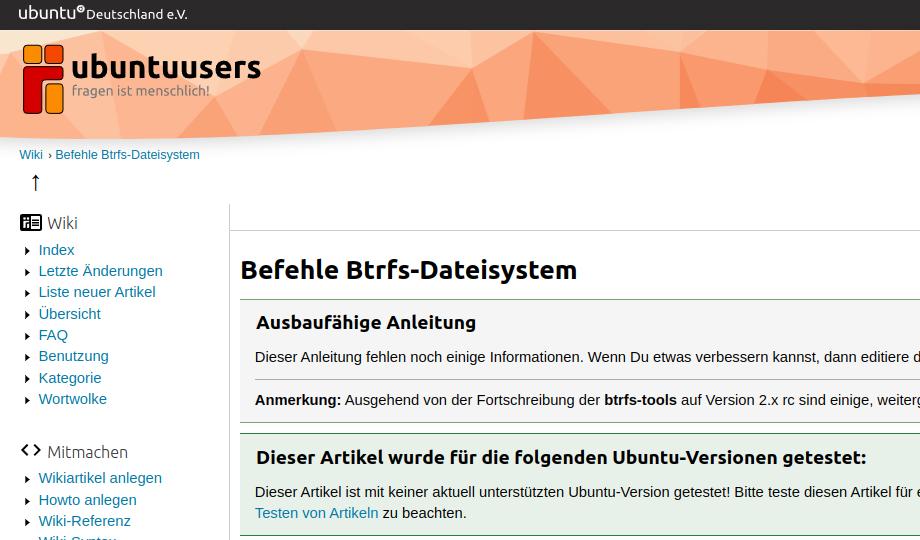Mithilfe des BTRFS Dateisystems kann man relativ einfach ein RAID über zwei oder mehrere Festplatten erstellen. Mit BTRFS können auch Snapshots erstellt werden (Siehe Snapper).
Folgende Anleitungen helfen dabei gut.
Detailliertes Vorgehen für verschiedene RAID Typen:
https://linuxhint.com/set-up-btrfs-raid/
BTRFS Dateisystem, Befehle:
https://www.libe.net/BTRFS-Befehle wie auch: https://wiki.ubuntuusers.de/Befehle_Btrfs-Dateisystem/
ZFS vs. BTRFS:
https://www.libe.net/ubuntu-zfs
Wichtigste Befehle:
Befehle
Filesystem prüfen:
btrfs device stats /media/sammsoft/btrfs-raid
btrfs filesystem show /media/sammsoft/btrfs-raid
btrfs filesystem usage /media/sammsoft/btrfs-raid
Subvolume:
btrfs subvolume create /media/sammsoft/btrfs-raid/Ordnername
Scrub:
btrfs scrub start /media/sammsoft/btrfs-raid
Snapshots (Snapper)
Timer:
systemctl list-unit-files | grep snapper
systemctl disable snapper-cleanup-.timer (Beispiel Deaktivierung)
systemctl enable snapper-cleanup.timer (Beispiel Aktivierung)
Snapshots auflisten:
snapper -c root list (Snapshots auflisten)
Snapshots löschen:
btrfs subvolume delete /media/sammsoft/btrfs-raid/.snapshots/* (Achtung alle werden gelöscht!) -> oder verwende Snapper-GUI aus der Anwendungsverwaltung
Im Fehlerfall mounten:
mount -o degraded,rw /media/sammsoft/btrfs-raid
